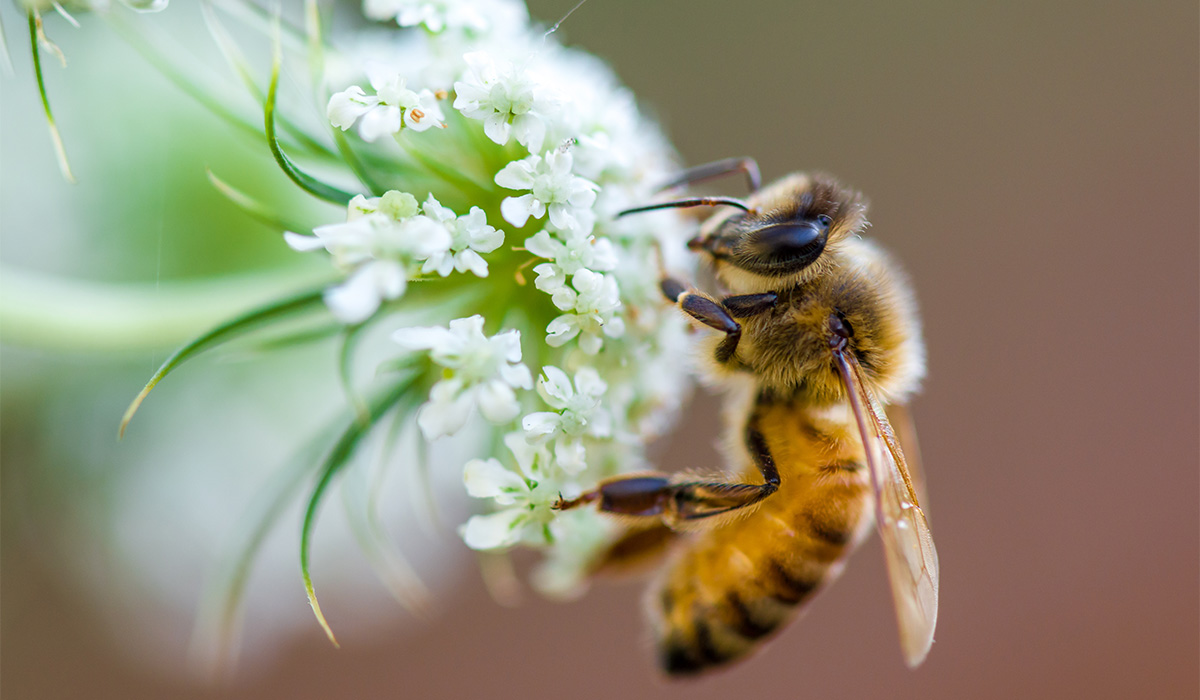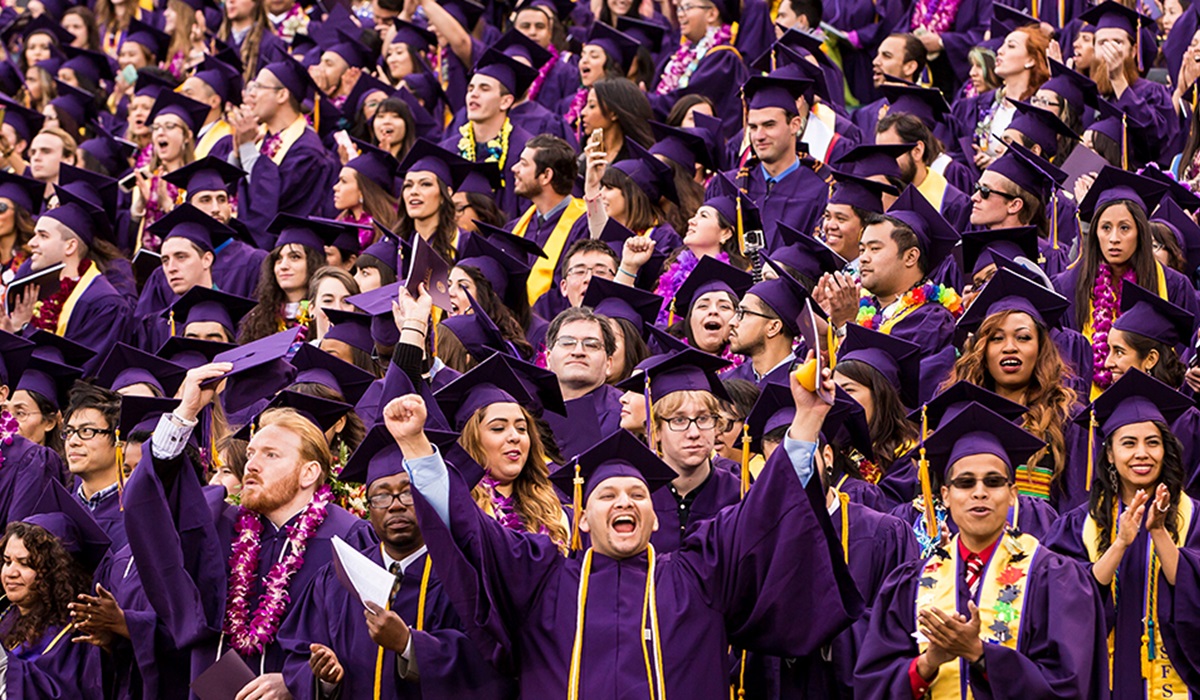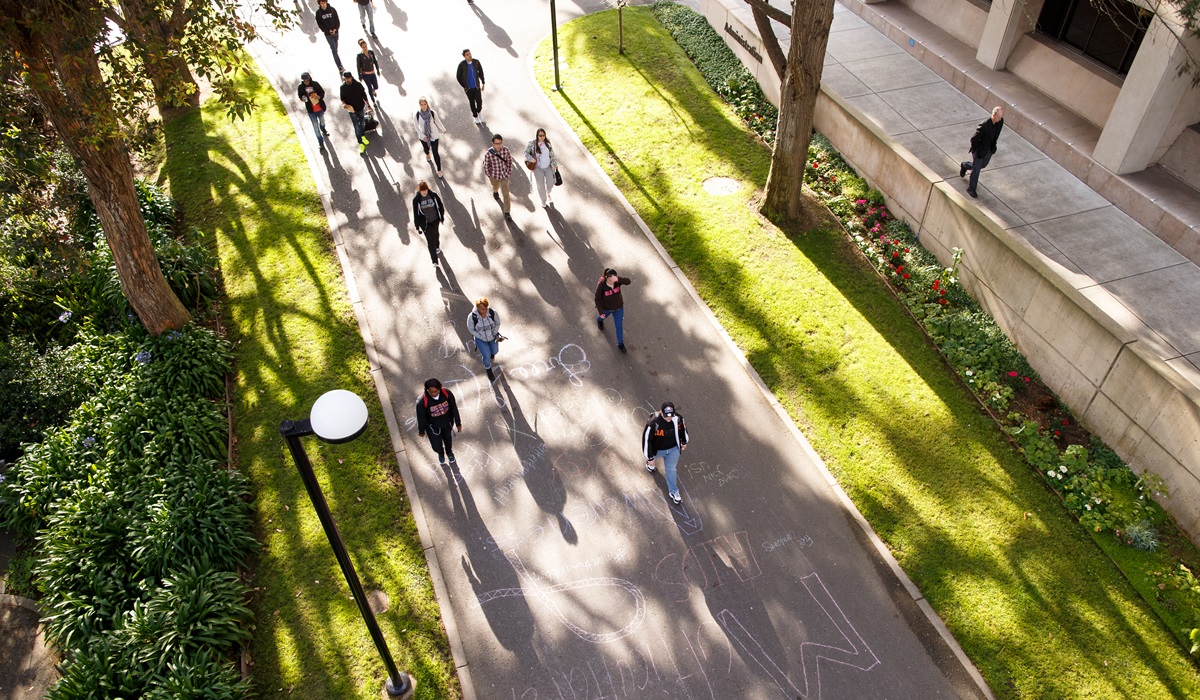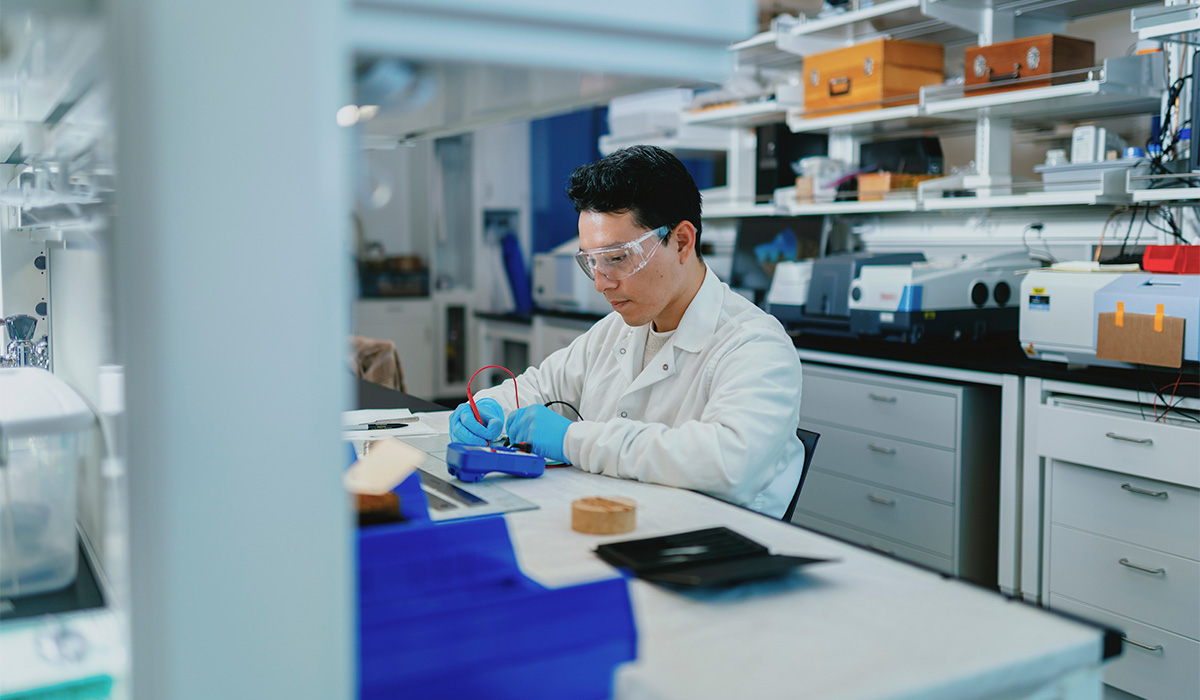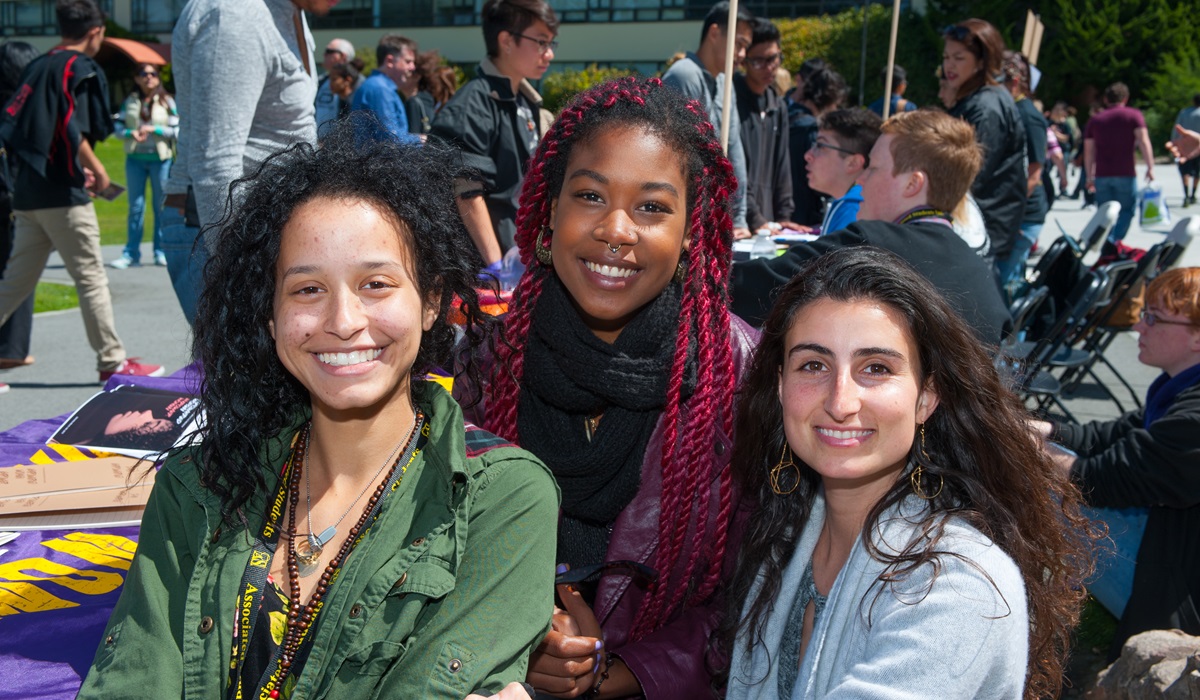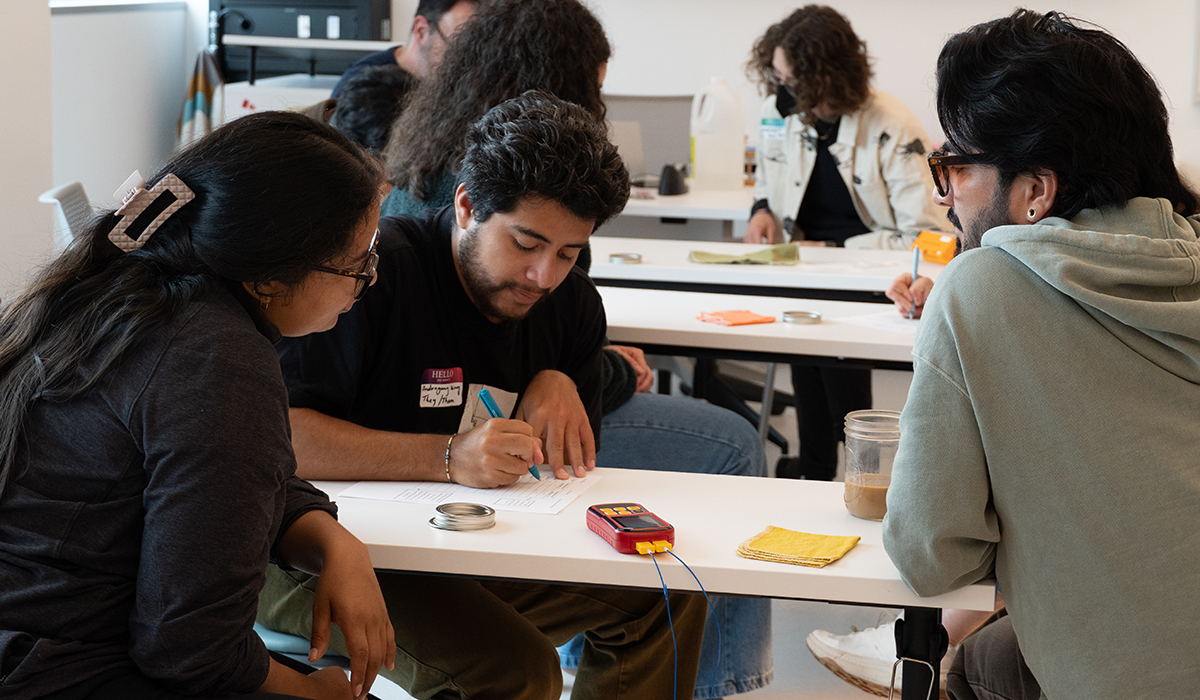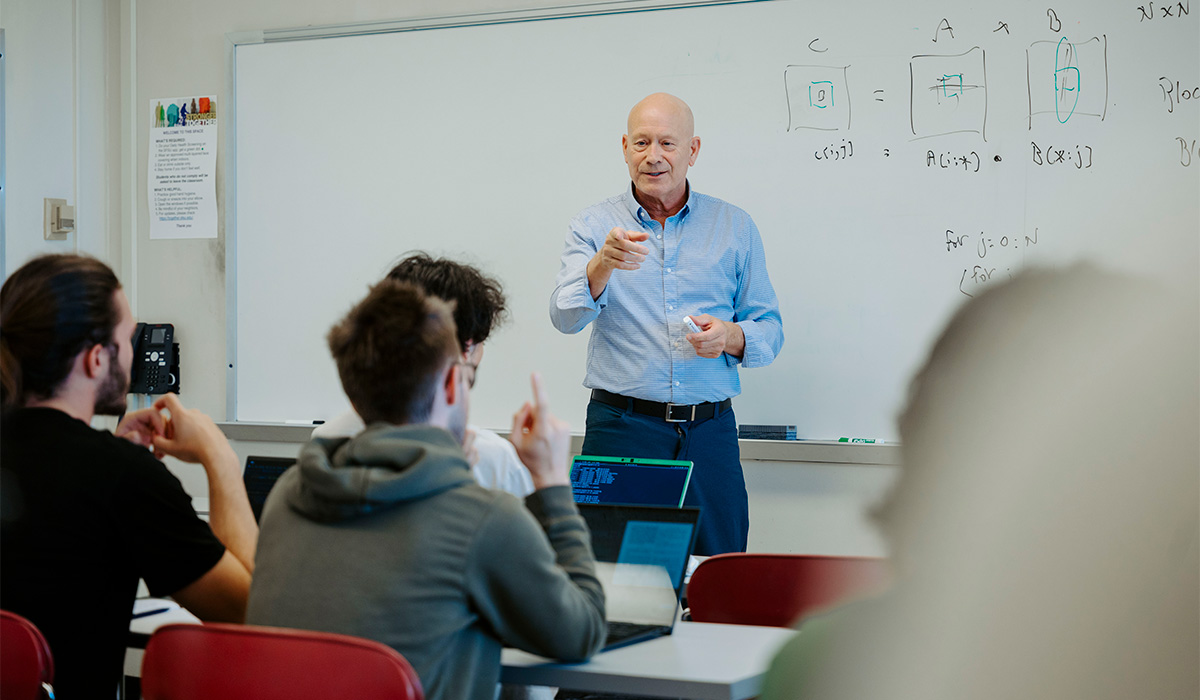SFSU undergrad research sheds light on zombie bees
After a semester in a class, most students gain new knowledge, skills and maybe some new friends. For students in Assistant Professor Mitzy Porras’ Biology class, several undergraduates also walked away with a peer-reviewed research paper about zombie bees in a scientific journal — a major résumé boost for any student.
“Publishing a paper is kind of rare, especially as an undergraduate,” said Lioh Jaboeuf, first author of the paper published in the scientific journal Insects. On the first day of Porras’ undergraduate course “Bio 460: General Entomology” in fall 2024, Jaboeuf and some of his classmates chose to conduct a research project about the honeybees as their semester project.
Honeybees play a critical role in urban ecosystems, pollinating the plants that support community gardens, street trees and backyard crops. However, they face many challenges, including parasitism by species like the parasitic fly Apocephalus borealis. The parasite lays its eggs inside a bee, and the larvae later force their way out, killing the bee. A 2012 SFSU study reported that before their untimely death, infected bees exhibit zombie-like behavior such as being disoriented, abandoning their hive and dying near sources of light. Porras’ class wanted to continue studying this parasite.
From September 2024 to May 2025, the SFSU team monitored honeybee populations at six different sites on the SFSU campus that included gardens with pollinators and herbaceous and woody plants, and near the science building where bees were previously collected. Parasitism rates fluctuated with the seasons — peaking in May when approximately 50% of bees were infected — and were closely linked to warmer temperatures and lower humidity.
“This study reinforces the need for long-term, seasonally informed monitoring of bee populations in urban areas. It serves as a powerful reminder that cities are dynamic ecosystems, and their resilience depends on how well we observe, understand and protect the species that keep them functioning,” Porras explained.
As a new professor at SFSU, Porras (who came to the University in fall 2024) prioritizes creating undergraduate classes that extend beyond standard curricula.
“It’s critical to offer a research experience that allows students to have hands-on activities,” Porras emphasized. “While they’re learning concepts, they should have an opportunity to apply them and actually build their CV. That would be a plus for them when they go to the job market.”
Jaboeuf, an international student from France, participated in two internships before coming to SFSU but didn’t have experience with this level of data analysis, publishing or the process of responding to peer reviews via revisions. As an international student, doing scientific writing in English was an extra layer of learning that he appreciated. “The whole experience was very formative,” he said.
“To be involved from the start, carry out the project on your own terms and write a paper, revise it and do it as a group was a very good opportunity to understand how research works,” said Jaboeuf, who took Porras’ class during his semester at SFSU. “It was one of the best classes I took when I was in the U.S.”
Co-author Jenny Hoffmann (B.S., ’25), a transfer student, repeatedly heard that she needed research experience for her future as a biologist. Field research, however, can sometimes be difficult for students, especially if it’s in a remote location and coincides with other obligations. But Porras’ assignment circumvented this problem by keeping the field work close to home.
“The project was done on campus, so it was very conveniently located,” said Hoffmann, who lived in the Towers at Centennial Square when the honeybees were being collected. “I could just go out and do the work in my community, which was so cool.”
For Hoffmann, this project was part of her connection to the SFSU community, something she valued as a student and cherishes going forward.
“My favorite part of science is that it’s very collaborative and team-oriented,” she said. “I can’t wait to see where the next part of my journey takes me because I now have this SFSU community with me. I get to bring that to the next place I work, and I get to create community there. I’m so excited for that.”
Latest SF State News V2
- SFSU Class of 2026 Commencement set for May 21 at Oracle ParkGators return to downtown ballpark for 10th year! Class of 2026, save the date for San Francisco State University’s 125th Commencement, which will be held Thursday, May 21, 2026, at Oracle Park, home of the San Francisco Giants. This is our 10th year celebrating graduates at the downtown ballpark, and we plan to welcome the more than 30,000 graduates, family members and friends for this unforgettable milestone. “Commencement is the most important day of the year for our university, our graduates and their families,” said SFSU President Lynn Mahoney. “In addition to representing the culmination of years of work, Commencement is our opportunity as a community to celebrate students one more time as they embark on their next adventure." This year’s Commencement ceremony will start at 3 p.m., with doors opening at 1 p.m., a slight time difference from previous years allowing graduates and their loved ones more time to celebrate in the city. More information about the May 21 ceremony will be shared throughout the year as it becomes available. Keep checking the SFSU Commencement website for updates! Follow SFSU on social media and tag your Commencement posts #SFSU2026.
- SFSU named a national leader in helping students move up in lifeThe Wall Street Journal recognizes SFSU as one of the top 25 schools in the nation for social mobility
- Gilead Innovation Initiative opens doors for SFSU student scientistsThe new initiative provides stipends, lab support and opportunities for first-time and emerging researchers
- Discover 2025: See what makes life brighter at SFSU on Oct. 18Prospective students and families can explore campus, meet faculty and students, and learn how SFSU prepares graduates for success
- SFSU offers full scholarships for first-of-its-kind PK-12 certificate in climate justice educationStudents participate in the inaugural cohort for the Graduate Certificate in PK-12 Climate Justice Education program that started summer 2025.
- SFSU is first CSU campus to join IBM Quantum NetworkIBM quantum resources open doors for hands-on learning and workforce readiness



